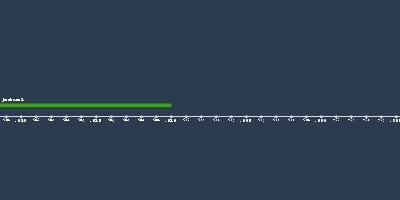Darius the Great - (Hystaspis) 'Ahasuerus' of Esther (29 set 522 ano antes da era comum – 15 fev 486 ano antes da era comum)
Descrição:
Darius I, commonly known as Darius the Great, was the third Persian King of Kings of the Achaemenid Empire, reigning from 522 BCE until his death in 486 BCE.He ruled the empire at its peak, when it included much of West Asia, parts of the Caucasus, parts of the Balkans (Thrace-Macedonia, and Paeonia), most of the Black Sea coastal regions, Central Asia, as far as the Indus Valley in the far east and portions of north and northeast Africa including Egypt (Mudrâya), eastern Libya, and coastal Sudan.
Darius ascended the throne by overthrowing the legitimate Achaemenid monarch Bardiya, whom he later fabricated to be an imposter named Gaumata. The new king met with rebellions throughout his kingdom and quelled them each time. A major event in Darius's life was his expedition to punish Athens and Eretria for their aid in the Ionian Revolt and subjugate Greece. Although ultimately ending in failure at the Battle of Marathon,
Darius succeeded in the re-subjugation of Thrace, expansion of the empire through the conquest of Macedon, the Cyclades and the island of Naxos and the sacking of the city of Eretria.
Darius organized the empire by dividing it into provinces and placing satraps to govern it. He organized Achaemenid coinage as a new uniform monetary system, along with making Aramaic the official language of the empire. He also put the empire in better standing by building roads and introducing standard weights and measures. Through these changes, the empire was centralized and unified.
Darius also worked on construction projects throughout the empire, focusing on Susa, Pasargadae, Persepolis, Babylon, and Egypt. He had the cliff-face Behistun Inscription carved to record his conquests, an important testimony of the Old Persian language.
Adicionado na linha do tempo:
Data:
29 set 522 ano antes da era comum
15 fev 486 ano antes da era comum
~ 36 years
